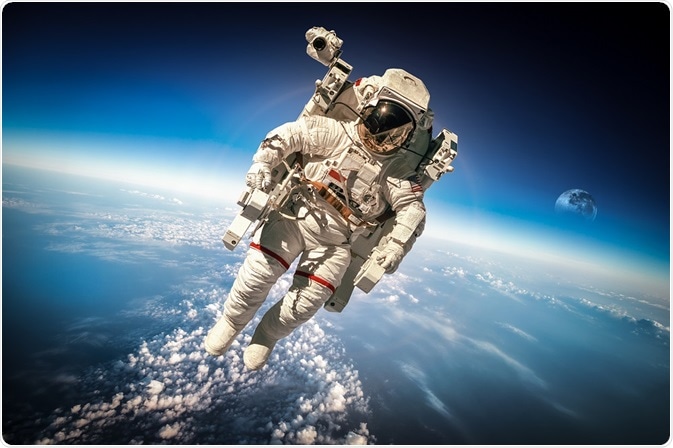Launching 1st March 2023. Also check out: https://www.thailandmedical.news/
Living on the International Space Station (ISS) may seem like a glamorous adventure for most of us here on Earth. However, astronauts need to be constantly monitored in space, and understanding the changes that occur in zero gravity has long been a challenge for scientists.

NASA is interested in sending man to Mars. This is to be the longest space ride that a human being has taken to date. That makes it important to understand just how well the human body is likely to hold up under all the different pressures that it encounters in outer space.
The astronauts who return to the planet from space trips are regularly and intensively studied to figure out exactly what changes their bodies undergo while living for prolonged periods of time in space.
The study of effects on the astronaut are divided by NASA scientists into five primary categories. These are:
The risks associated with each category are assessed for every astronaut that goes into space.
The lack of a proper gravitation field affects spatial orientation. The astronaut literally doesn’t know which side is up. This results in issues with hand-eye coordination, balance during locomotion, and even motion sickness.
The low gravity also leads to loss of 1% bone density in a month. This is high compared to the 1% loss a year experienced on Earth. Muscle mass is also lost due to the low gravitational force.
As any reality show contestant will testify, living in close and confined quarters with a group of people is never exactly free of friction. Astronauts are trained as crews and their abilities to work effectively as part of a team is tested extensively way before they are allowed to head out to the ISS.
This is because isolation in a confined space often results in a decline in mood, cognitive abilities, low morale and testy interpersonal relationships.
The closed environment can often seem hostile to the astronaut, elevating stress hormone levels and affecting the immune system. This can make the body more susceptible to illness and to the formation of allergies. Even the microbes that live naturally on the body may change and mutate in space to cause problems for the human organism.
Radiation is perhaps the biggest challenge in space. Despite its shields, the ISS receives ten times the radiation that exists on Earth. This is likely to damage the central nervous system of the astronaut and can manifest in many changes and illnesses at a later date. Most notably, altered cognitive function, reduction in motor functioning ability and changes in the regular behaviour of the individual have been associated with high radiation levels.
The distance from the Earth is a logistical issue to be faced. Due to the distance, fresh supplies may not always reach the ISS. This means that the recycling of all materials available is a must. Imagine having to drink water that has been processed from body fluids such as urine and sweat. An astronaut will need a strong psychological set up to deal with this.
Upon returning from a prolonged stay in space, the human body is still functioning as though in a weightless environment. For this reason, during the period of readaptation to gravity, the muscles may not work as required.
This is why any astronaut who returns to the planet is forbidden to drive for 21 days after landing. Another activity to help smoothen the readaptation to the gravitational pull of Earth is to have showers while in the sitting position.
Very often astronauts tend to collapse after standing for long periods of time soon after returning to the planet. This is because of the loss of skeletal mass and strength. A rehabilitation program is required to ensure the continued good health of the astronaut. This will include constant monitoring of their body functions, as well as a personalized exercise regime to help deal with the muscle loss.
The scientists at NASA’s Johnson Space Center in Houston provide the initial testing and recovery schedule for most astronauts who return to Earth after a somewhat prolonged stay at the ISS. Following this, an independent physical rehabilitation program is carried out for a few months with strength and conditioning specialists and athletic trainers to ensure that the astronaut is in good health.
In addition, there are extensive debriefings to help space specialists retrieve all possible data relating to whatever the astronaut has experienced on the ISS and on the trips to and from it. The psychological effect of having stayed away from family and regular life is also a serious concern. The astronaut may need help to reconnect with people in their life after returning from a space mission.